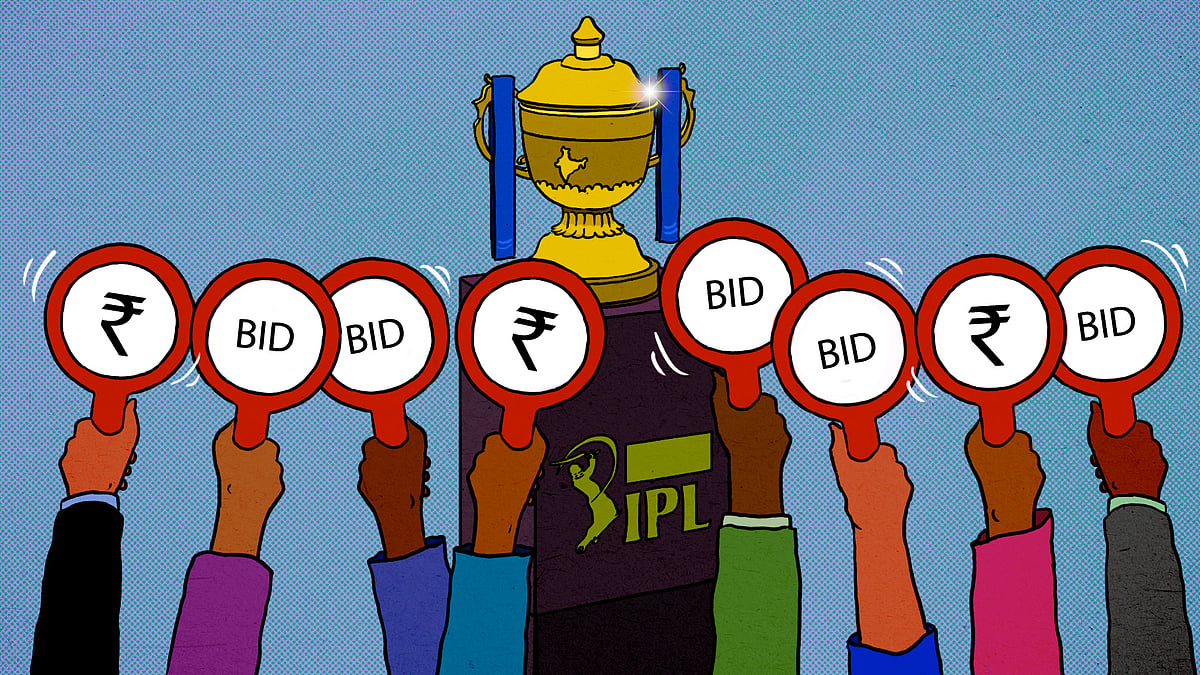Debating NDPS Act: ‘A Pandora’s box for already corrupt officers...’
All eyes are on NCB right now, but part of the problem is the NDPS Act. This is how the law got passed despite many MPs raising concerns about its misuse.
With the Narcotics Control Bureau ordering a vigilance inquiry into allegations of foul play against its Mumbai zonal director Sameer Wankhede, there are questions being raised about the NCB’s conduct. However, long before cases involving celebrities brought NCB into the spotlight, concerns about how law enforcement agencies would implement the Narcotic Substances and Psychotropic Substances (NDPS) Act were raised in Parliament.
On August 29, 1985, Janardhana Poojary, the then minister of state for finance in the Rajiv Gandhi government, introduced the NDPS Bill in the Rajya Sabha. As a signatory to the United Nations Single Convention on Narcotic Drugs, 1961, India was obligated to introduce strong legislation to control the manufacture, supply and consumption of drugs, and discontinue its traditional use of cannabis for anything apart from medical and scientific purposes. This had to be done within 25 years of signing the convention.
Time was running out.
India’s colonial-era drug laws were decentralised. The British central government was empowered to control opium and other narcotic drugs under the Opium Act, 1857; the Opium Act, 1878; and the Dangerous Drugs Act, 1930. Control over cannabis in various forms and its by-products was left to state governments, which exercised their own laws.
The NDPS Bill proposed rigorous imprisonment for 10 years extending to 20 years and a minimum fine of Rs 1 lakh extending to Rs 2 lakh as a minimum punishment for drug offences. It proposed to treat drug abusers and drug addicts differently, prescribing a year’s imprisonment or fine or both for consuming or possessing “hard drugs” like cocaine, morphine or heroin and six months’ imprisonment or fine or both for offences relating to other narcotic drugs and psychotropic substances.
The Bill also empowered judges to release addicts convicted for consuming or possessing drugs in small quantities on probation to undergo de-addiction.
In Parliament, Poojary told legislators, “With the considerable increase in illicit drug traffic and drug abuse situation at the national and international levels over the years, many deficiencies in the existing laws have come to notice.” The major deficiencies, Poojary said, were a lack of effective control on psychotropic substances (the new drugs of abuse at the time) and low levels of punishments for offences.
Nirmal Chatterjee, a member of Parliament from West Bengal and from the Communist Party of India (Marxist), complained that his party colleagues had only learned about the introduction of the Bill from the newspapers that morning. “When the newspaper report appeared that this Bill is going to be taken up, we were taken by surprise. After that when the papers came, that was 9 am. Since then I have not turned a single page of the Bill expecting to learn that the number of clauses was 83, which was quoted here,” he said.
The CPIM urged Poojary to support an amendment moved by the All India Anna Dravida Munnetra Kazhagam MP R Ramakrishnan to have the Bill referred to a select committee for a detailed study and debate.
In the Lok Sabha, Ajay Mushran, the Congress MP from Jabalpur, had said Section 27, which dealt with small quantities of drugs, was a “serious lacuna” in the Bill. The NDPS Bill had not defined what amount of a particular drug constituted a small quantity.
“You are opening a Pandora's box for the already corrupt officers…The definition of the term small quantity should not be left to be incorporated in the rules,” warned Mushran, adding that unless the government defined what it meant by a small quantity, there was a high possibility of the law being misused. “You are providing for deterrent punishment, but 95 percent of the cases are those where only 13 or 25 grams are found. Your aims and objects are not in conformity with what is provided about the definition of 'small quantity' because 95 percent of cases are going to be left through the mercy of the officers,” he said.
Ramashray Prasad Singh, the Communist Party of India’s MP from Jahanabad, Bihar, also offered an anecdote to prove his point.
“I saw a tree in the compound of Jahanabad police station. People told me that it was a ganja tree. Now, you may tell us if there would be 30 kg ganja on the tree located in the police station, how [would] the police personnel there, who have to implement the law, implement it? If the police personnel, who have to apprehend the culprits, indulge in such acts, what to say of others?” said Singh.
Poojary dismissed the concerns raised by the MPs. “Possession of even one single gram is punishable and where it is not punishable, the burden is on the person concerned to prove that the minimum is kept. If it is used for the consumption of the people who have become addicts and who take it in small doses, in such cases the burden is on them to prove this,” he said.
The Bill was not referred to a select committee and was hurriedly passed during the monsoon session of Parliament in 1985. On November 14, 1985, the NDPS Act came into force. On March 17, 1986, the government established the NCB to coordinate actions under the NDPS Act by different wings of the central government and state governments, ensure that India fulfilled its obligations under international conventions on narcotic drugs and suppressed the illicit trafficking of drugs.
The limitations of the hastily enacted law soon became obvious. A Bill to amend the Act was moved in Parliament during the winter session in 1988. In the Rajya Sabha on December 20, Kamal Morarka, an MP from Rajasthan, noted that of the 1,800 convictions under the NDPS Act in the first three years of the law’s existence, most were awarded in cases where the police had seized two grams, five grams and 10 grams of drugs.
“I want a specific assurance from the minister that while implementing this Act, there has to be a clear demarcation between an addict who is found with a drug and a smuggler or a dealer who is found with a drug. Now, this is a very, very fine distinction, but a very important one from the human point of view because the person who is arrested if he is caught with five grams. of the substance is an addict, he is a patient, he needs our sympathy, he needs very, very special treatment. Putting him in jail will not solve any problem. Unfortunately, as the law is being implemented today, it is the addict, the poor child who has become an unfortunate victim of this problem, he is caught and put in jail. The real big drug smugglers, the cartels who are dealing with these substances across the border are still enjoying themselves, increasing their business, using India as a transit point and their business is flourishing day by day,” Morarka said.
He also warned that blanket enforcement of the Act by agencies, without distinguishing between a drug consumer and smuggler, could be “very, very dangerous”. “Unless the Narcotics Control Bureau is manned by people of unimpeachable integrity, it will be impossible for you to implement this Act. I want to bring it to the attention of the minister that the person heading the Narcotics Control Bureau will have to be a person dedicated to the cause of prevention of drug abuse. It is some sort of national commitment that one must have. It is not a mere economic matter like stopping gold smuggling or watch or transistor smuggling. This is a product or an item which can affect the health not only of this generation, but so many future generations to come. Unless you put officers of unimpeachable integrity, this Act will not be able to help you,” Morarka said.
Ajit Kumar Panja, the then MoS Finance, defended the law enforcement agencies. “I do not agree with the Members that our officers are corrupt. Most of them — majority of them — are good and work hard,” he said before conceding that there may be “one or two” who don’t match this description.
The Amendment was passed in 1989 with the addition of Section 31(A), which awarded a death sentence to a person with a prior conviction under the Act.
A second Bill to amend the Act was moved in Parliament in 1998. Unlike the original legislation in 1985, the 1998 Bill to amend the NDPS Act was sent to the Parliamentary Standing Committee on Finance for scrutiny. In the interim, the government sought to make a distinction between “victims” and their “victimisers” by classifying drug quantities as small, commercial and a quantity that was in between the two.
But when finance minister Yashwant Sinha introduced the much-delayed Bill in Parliament in November 2000, the legislators again raised concerns over the ambiguity of classifying drug quantities.
Bharati Ray, a Rajya Sabha MP from West Bengal, pointed out the vagueness of the terminology for the quantity of a drug that was greater than small quantity but lesser than commercial quantity. She said this lack of clarity would help the drug mafia and encourage corruption.
She also noted another flaw. “The term ‘users’ has never been defined anywhere. Users for personal use, users for making further use, users for making profit — that has not been mentioned. The Bill clubs together, therefore, those who produce or sell, and knowingly violate the rules, and also those who use it,” Ray said.
On the question of honest implementation of the drug law, Sinha could not offer much assurance. “No government can rule out the possibility of that power being misused,” he conceded. He said that with this amendment the government was trying to correct a system where undertrials spent years in jail owing to judicial delays. “I don't think it is a matter any democracy can really be proud of, that we have a system where judicial delays take place; where courts are not able to dispose of the cases for various reasons, for which we may also be responsible, to some extent,” he said.
The Act was amended in 2001 and punished a person convicted for possessing a small quantity of a drug differently from one convicted for possessing a commercial quantity.
In 2014, the Act was amended for the third time. The government softened its stand on awarding death sentences to persons with prior convictions and made the award of a death sentence optional.
The latest changes the government proposes to make to the Act could see the possession of small quantities of drugs for personal consumption being decriminalised. The NDPS Act places the burden of proof upon a defendant to demonstrate that a small quantity of a drug in her possession is meant for her personal consumption. This month, the ministry of social justice and empowerment recommended replacing the punishment for consuming a drug under Section 27 from one year imprisonment or fine of Rs 20,000 or both with mandatory 30-day rehabilitation and counselling.
In two of the high-profile cases of the past year, the NCB had booked actor Rhea Chakraborty and Aryan Khan, the 23-year-old son of actor Shah Rukh Khan under Section 27 even though no drugs were found in their possession. Even if the ministry’s recommendations do become law, the changes cannot be applied retrospectively.
 Was Ananya Panday really ‘joking’? Depends on which ‘source’ you speak to
Was Ananya Panday really ‘joking’? Depends on which ‘source’ you speak to From Adani to Jindal to the Glazers: The race is on for a new IPL team
From Adani to Jindal to the Glazers: The race is on for a new IPL team
